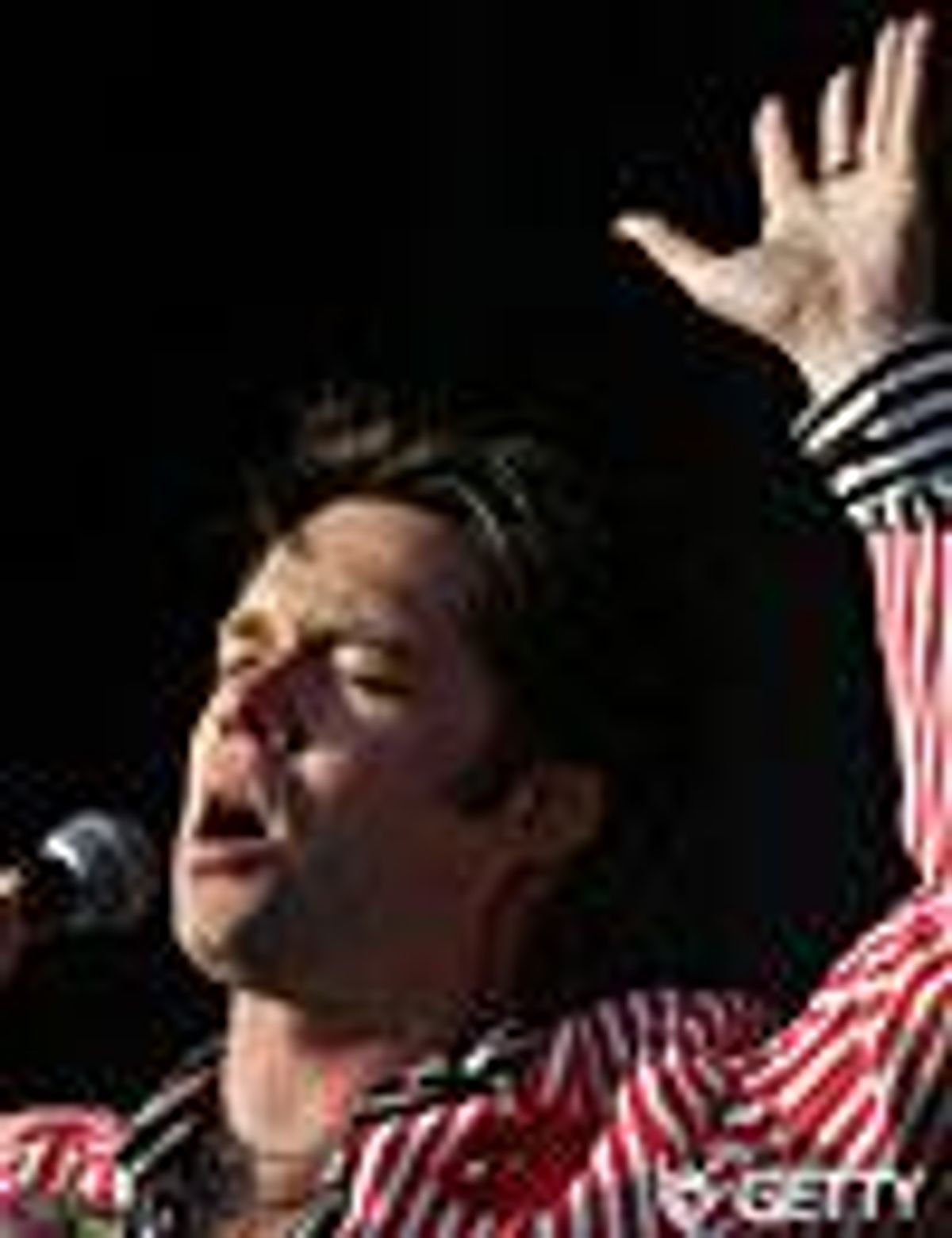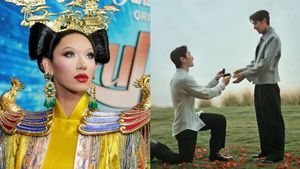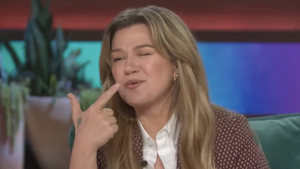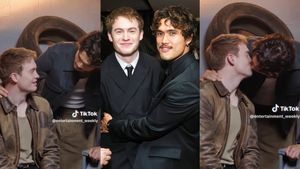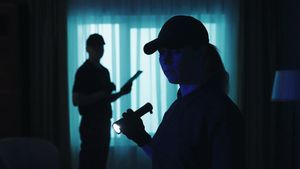It had been
raining in Los Angeles for nearly 24 hours when I
arrived at the Hollywood Bowl, just as it had been raining
the night Judy Garland staged her triumphant Carnegie
Hall concert in 1961. Fortunately for those of us in
2007, the weather had shifted and the masses that
filled the outdoor seating at the Bowl were treated to
fresh, cool air and a perfect view of the hills behind
the stage.
Rufus Wainwright,
looking very much the dandy in a ruffled Tom Ford
shirt, took to the stage amid generous cheers. At a certain
point he poked fun at his clothes, which made for some
delightful banter but was also a clear nod to the
woman who inspired the show. When Judy Garland
performed the lineup Wainwright emulated last night, she
made many funny quips at her own expense. "I
wish I would perspire," she said while pushing
back her heavy bangs for the umpteenth time,
"...but I sweat!"
There were many
parallels between the two concerts beyond the choice of
songs. Rufus, like Judy, kept a simple glass of water at his
disposal, entertained us with monologues at the same
intervals Garland did, and at the moment in the
concert when Garland knelt into the audience to kiss
Rock Hudson, Rufus surprised us by doing the same with
front-row onlooker Debbie Reynolds.
He opened as Judy
did with a boisterous rendition of "When
You're Smiling," bringing new, cheeky humor to
it by lingering on lyrics such as "When your
groom takes a powder while you're walking down the
aisle, don't worry that he's been...
blown." The audience responded with howls of
laughter.
It was one of
many ways in which Rufus not only paid tribute to Garland
but to the community that made her an icon. He made mention
that at Judy's performance -- in a time when
gay sexuality was itself illegal -- the audience
comprised mostly gay men. It was to those men who
paved the way for our present rights that Rufus dedicated
the song "I Can't Give You Anything But
Love."
One highlight was
the Gershwin-penned "Do It Again," which Wainwright
crooned in his wistful, breathy tenor. This was the romantic
balladeer at his best.
Much of the rest
of the program, filled with show-stoppers that Judy
famously belted out, proved strenuous for Rufus. By the
second act his voice was so strained it cracked at a
song's climax. (Midway through "You Go
to My Head," he seamlessly warbled "I forgot the
goddamn words" before finding them again.) Even
so, he offered up his limitations as further tribute
to Garland's ability and played off such moments with
a devil-may-care attitude. It wasn't about him
being "as good" as Judy -- it was about
paying homage to her.
It was clear he
had given her work intelligent consideration, going so
far as to tease the relatively young audience. In the
introduction to "San Francisco," he
sang, "I never will forget... Jeanette
MacDonald...," then paused with a wry smile
and said, "For those of you who
have...," continuing with a brief bio of
MacDonald and his personal theory that this original
introduction was perhaps Garland's sly jab at
her.
In another funny
moment, Rufus told a story about having nearly drowned
at a very young age in the pool at the Chateau Marmont.
A fabulously dressed woman had jumped in and
rescued him, he said, "That
woman...was Betty Buckley."
Rufus's
sister Martha Wainwright and their mother, Kate McGarrigle,
both accomplished musicians, joined him in the second
act. Martha's solo on "Stormy
Weather" was spellbinding -- so terrific, in fact,
that it posed a danger of stealing the show. Many
in the audience gave her a standing ovation.
Also joining him
was Lorna Luft, Garland's daughter with her third
husband, Sidney Luft. Lorna was vibrant, wearing a snug,
fluorescent-pink gown. In a voice that eerily recalled
her mother, she sang with Rufus the
duet "After You've Gone." Later she would
return to the stage alone to sing "Carolina in
the Morning," which Lorna said was one of her
mother's first and favorite songs. The moment would
have been tearjerking if not for the jubilant
tone of the song.
As Rufus and
Lorna are both heirs to musical families, stories from their
youth proved a key element in the show. Wainwright's
performance was reminiscent of those moments
in childhood when, left alone with a
favorite record, we would sing along, performing for an
imaginary audience. Something of the purity and joy of
such childlike admiration flavored Wainwright's
concert, even more so as he coaxed us to sing along
with him.
For an encore,
Wainwright returned to the stage in Judy drag, bedecked in
a double-breasted tuxedo jacket sans pants, black stockings,
high heels, earrings, lipstick, and a tilted fedora.
The audience roared, and he charged into the
rambunctious "Get Happy."
It was a generous
encore, and Rufus seemed relieved to be concluding his
acclaimed yet exhausting Judy tribute tour while
simultaneously not wanting it to end. The encore was
five songs long. His mother and sister and
Lorna all joined him for the final bow. The audience of
thousands stood and cheered, and as the crowds slowly made
their exit, many of them were still singing. It was an
ecstatic and gay evening.
I found myself
meditating on the current state of pop music celebrity.
While so many of today's young stars seem more
interested in mimicking the behind-the-scenes
dysfunction of artists like Garland -- drug abuse,
eating disorders, and high-profile marriage failures -- here
was Wainwright highlighting the merits of their
talents.
While his music
may not be an obvious descendant of Garland's
repertoire, his appreciation for her power to capture
the depths of our emotion in the various stages of
love and heartbreak is. In this way Wainwright's
concert was a triumph, both as entertainment and thoughtful
eulogy.
Brother is a Los Angeles-based writer for Amoeba.com.
